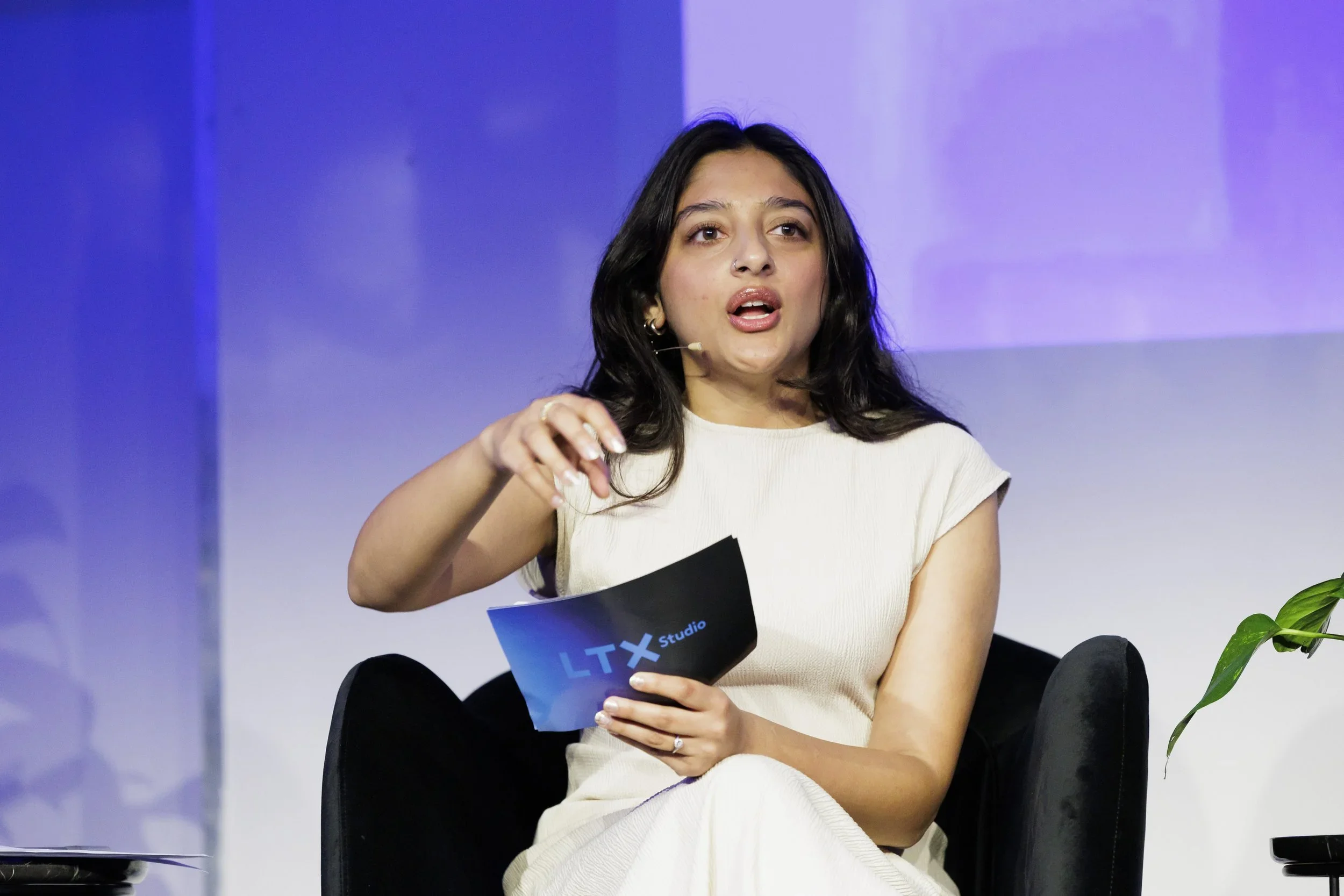Gender Bias in AI: What It Means for Recruitment and Professional Networking
Gender Bias in AI: What It Means for Recruitment and Professional Networking
AI is rapidly reshaping careers, recruitment, and networking. But what happens when it gets our identities wrong?
I recently experienced this firsthand when ChatGPT confidently misidentified me as a white woman from California, despite my South Asian heritage. This personal frustration was amplified by news of an American company using AI to "neutralise" Indian accents, equating a "whiter" sound with better customer satisfaction.
These aren't isolated incidents. AI bias is already appearing in hiring algorithms, leadership assessments, and networking tools, posing a significant challenge to career equity and inclusion. A recent study by the London School of Economics, which I came across earlier this week as an article in The Guardian, further confirmed these fears by revealing significant gender bias in AI tools used by councils, companies, and workplaces.
One striking example from the study involved an 84-year-old. Researchers ran the same set of notes through an AI tool, swapping only the gender. The male version highlighted "complex medical history, poor mobility," while the female version emphasised being "independent and able to maintain personal care." Same person, same needs, but two completely different narratives.
If AI can distort perceptions in healthcare, imagine its impact on recruitment, networking, and leadership evaluations. This isn't just a tech problem; it's a critical career and inclusion challenge we need to address now.
AI Bias in Recruitment and Career Growth
As leaders, founders, and executives, many of us are already using AI-powered tools – from applicant tracking systems to LinkedIn recommendations – without fully realising how much they influence:
Who gets shortlisted for roles
Which profiles appear in “recommended connections”
Who is flagged as a potential promotion candidate
If algorithm bias in leadership pipelines and recruitment decisions goes unchecked, we don’t just risk fairness – we miss great talent, weaken our networks, and limit diversity at the top.
We know from the stats that, compared to a name like “David,” a Pakistani, Bangladeshi, or African name has to submit at least 60% more applications to have the same chances. This can’t be an excuse anymore. In 2025, our data input matters, so our output must be representative of the real world.
So, I ask you, what’s leadership’s role in tackling biases? If you’re in a leadership role, you can’t afford to treat AI as a “black box,” something you just trust to work.
Here are four things we can do to reduce biases in recruitment and career growth:
Audit your AI tools. Ask vendors how they test for bias in recruitment and networking algorithms.
Diversify your decision-making inputs. Don’t let AI have the final say on hiring, promotions, or event invites.
Champion inclusive networking. Mix algorithm recommendations with human-curated introductions. This is where the LMF NETWORK (Like Minded Females), comes in - we have chosen not to build an AI business and instead focus on human-first connections and collaborations for workplace success.
Lead by example. Connect intentionally and open doors for underrepresented talent.
🎥 Watch here: Is AI Stealing Our Work? My Book, My Job, My Future to see how AI is already shaping careers and opportunities globally.
AI in Networking: How Algorithms Shape Access
Networking has always been about access. In 2025, much of that access is filtered through AI: the events you’re invited to, the people in your suggested connections, even which DMs you respond to.
If those algorithms fail to surface underrepresented voices, your network will become less diverse and less innovative. Diverse networks fuel creativity, partnerships, and long-term business growth.
So, what can we do to diversify our networks online? It might sound simple, but let’s start with the content we consume. Is your media, music, and reading material created by and featuring a diverse group of people? Are you using these to learn from and seek out new networks?
When attending conferences or events, are you intentionally speaking to a variety of people, connecting with them, and staying in touch? We know we can’t beat the algorithm, so why not shape it consciously, ensuring we’re amplifying the voices that aren’t always heard?
🎥 Watch here: How AI is Changing Indian Accents, Scraping Art & Taking Jobs to learn more about AI’s impact on identity, culture, and opportunity.
Building a Fairer Future for Careers and Connections
AI bias in recruitment, leadership, and networking isn’t a “future problem,” it’s already influencing who we meet, who we hire, and who gets the chance to lead. If we want networks that are both powerful and diverse, we need to challenge the systems that quietly shape them.
Your network is your net worth, but only if it’s built on fairness, opportunity, and intentionality. Let’s make sure AI becomes a tool for career growth and inclusive leadership, not another barrier to break through.
As a business, LMF NETWORK (Like Minded Females), part of our services now includes supporting companies in adopting inclusive and accessible AI tools within their processes. These are tools that empower their people and enhance opportunities. We’re not here to dictate what to use, but to remind you that every problem needs a relevant business solution that improves productivity, profit, and people.
💬 So, I want to ask you: Have you ever noticed bias in the AI tools you use for hiring, networking, or career growth?
📩 This newsletter was written by Sonya Barlow, entrepreneur, author and presenter. Work with Sonya Barlow on business strategy, keynotes and campaigns. Email: hello@sonyabarlow.co.uk
Sonya Barlow is an award-winning entrepreneur, presenter and author with over 100K followers. She hosts her self-titled YouTube show "The Sonya Barlow Show", authored the business book "Unprepared to Entrepreneur" and runs a business inclusion consultancy and networking app the "LMF Network". You can work with Sonya for campaigns, content and conversation. Connect via email 📩 - Hello@SonyaBarlow.Co.Uk.

